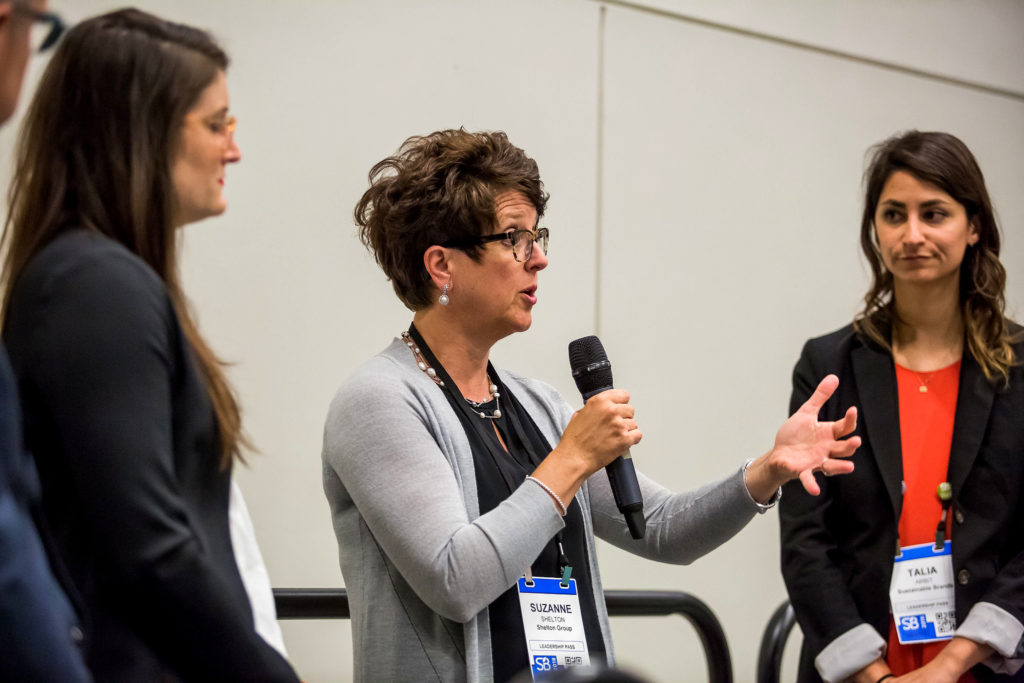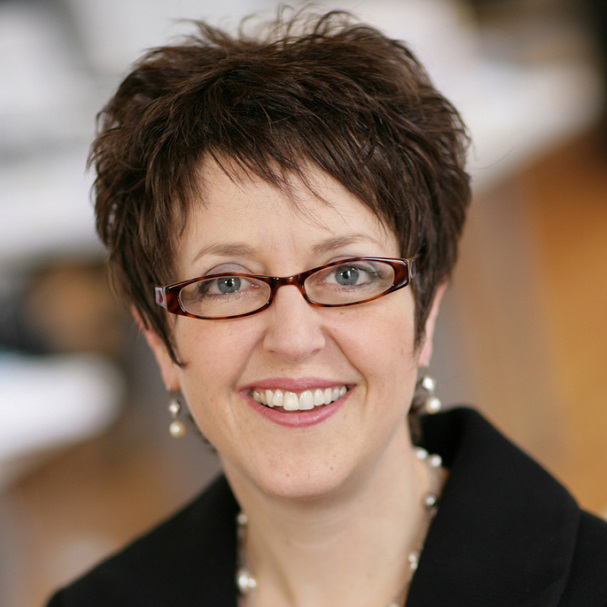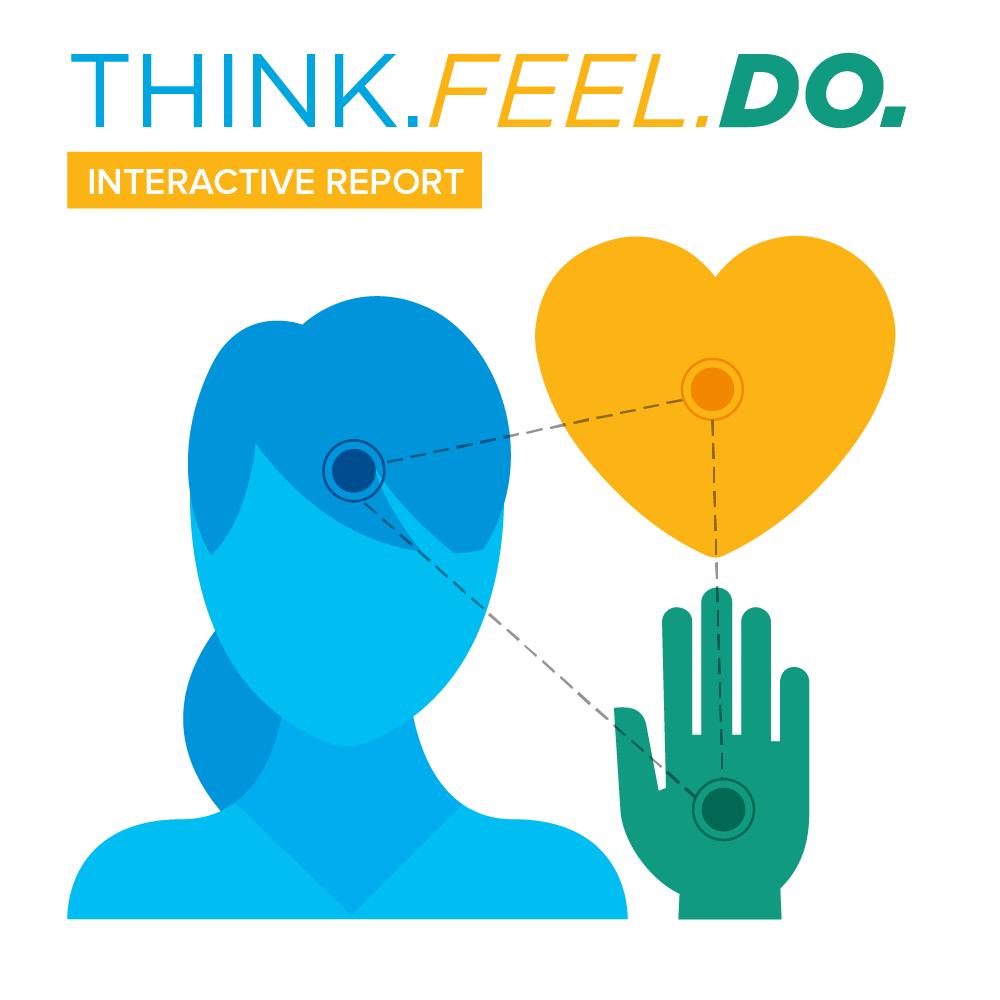Consumers don’t really differentiate between ‘sustainability’ and ‘corporate responsibility’. They just want to buy from good companies – companies that are doing right by people and the planet. The brands we buy are extensions of our personal brands – they’re manifestations of how we want to be seen in the world – and increasingly we want to be personally seen as people who are doing the right thing. That, of course, also means we increasingly don’t want to buy from brands that can’t help us make that personal statement.
When Suzanne Shelton, CEO of Shelton Group says this, you’d be hard pressed to find an executive who wouldn’t take note. Her 28 years as a consultant in sustainability provides weight to these words, and her spot-on analysis of the American consumer forces you to pause. Do major corporations really understand this insight into today’s demanding consumer? And are they going to be fast enough in pivoting to exceed these demands, staying both relevant, and profitable?
We spoke with Shelton in our ramp up to SB’19 Detroit where she will speak both in a panel setting and as an individual expert to the over 3,000 attendees this June. An advocate for sustainability and how corporations communicate that to their consumers, Shelton spends much of her year either deep in insights, the marketing and storytelling implications of those insights or traveling to share all of it. A longtime speaker at Sustainable Brands events, Shelton still finds our unparalleled conference exciting,

This [environmental and social responsibility] isn’t a fringe thing. Sustainability is absolutely a business strategy thing and a brand pillar thing. Sustainability is a real driver for business.
While most brands know by now that sustainable initiatives and social/environmental responsibility are table stakes, fluctuating vernacular and competing objectives make communication daunting. Shelton sees the next wave of brand speak — brand transformation — really addressing plastic waste. While this topic is at a
fever pitch right now, her firm has been conducting market research over the last year to assess what exactly middle America knows about it, and how they feel about what they know.
Shelton Group conducts quantitative research into questions like, “Is middle America aware of plastic waste the way people in the industry are and what do they expect brands to be doing about it?” and brings those real-world answers to their clients (as well as those savvy enough to pull up a seat at conferences). It turns out that yes, people are “woke” to this, and more than you would expect. But Shelton is quick to point out the foreboding issue attached to their awareness.
As more and more Americans decide they don’t want to contribute to the single-use plastics problem and try to shop differently, they’ll immediately experience a feeling of being ‘stuck’ that we think will result in backlash towards brands. People will demand other options, and the brands that get in front of this will win in the end.
Get News & Updates About SB'19 Detroit
The consumer starts to lose interest when the brands and suppliers justify and defend their packaging. Social and mainstream media have given consumers the information; they know wildlife is in peril and that we are creating mountains of trash. They don’t want to hear it anymore Shelton says; they just want brands to figure out how to do it better and keep single-use plastics out of the ocean. She notes, too, that our sustainability community needs to be mindful of our language on this issue.
I hear a lot of ‘plastic is bad’ and that’s just not true. Nobody wants to get rid of plastics in an operating room or a construction site – they save lives and make homes more energy efficient! We need to keep the conversation focused on single-use…and that’s not just plastics; it’s all materials and the disposal mentality that we’ve basically trapped folks in.
Shelton sees a way to change this, and has great enthusiasm that brands will be able to alter their business models — in time. It’s a multistep journey toward this transformation, and one part is consumer education. She notes that there is no perfect material. Every packaging form has its pros and cons, and their best use is truly case by case. Getting the public to understand that will be challenging given all the discord over materials and circular recycling streams. But while that is still an area of debate, Shelton sees a second part of the transformation successful through aiming at consumer convenience.
Shelton cites Tom Szaky’s approach with Loop as a very plausible one. She loves his references to “bringing back the milkman,” and his call to connecting people to a familiar system we just haven’t used in a while. Familiarity reduces barriers to trial, and that’s what makes the “get a box on your doorstep” approach so workable as well – it’s a model so many know so well.
What we have in our favor is 41% of people want to be seen as someone who buys green products; again, this is not fringe were talking about, this is mainstream America. People do put their money where their mouth is on this topic, but it’s selective. Think of the in-me / on-me products; moms will pay more for those touching their kids. They will tell us in our qualitative research that it’s insanely expensive, but they feel the need to protect their children. With millennials, it’s often about how they are feeling at the moment. If they have the money right there to afford the greener options, they buy them, but cost sometimes trumps purpose with this group.
Price over purpose is a hard truth and one many brands know first-hand. With the onus squarely on corporate America to provide better, greener options, many have come out with sustainable or ‘better’ versions of their most purchased products. The material and ingredient changes going into this ‘better’ version come at a cost that the brands have passed along to the consumer, and seen time after time the traditional product
purchased over the greener version. But Shelton posits the questions her research has uncovered: If these brands can make a ‘green’ version, why are they still making the non-green one? She continues channeling the American consumer: “Why does the consumer need to do the research, and why are they being tasked with making the decisions?”
When these questions are followed by astounding numbers from her research, like 86% of Americans expect a company to stand for something, and 67% want that something to be linked to what that company provides (i.e. plumbing companies should have water conservation initiatives and candy brands should focus on obesity issues or fair farming practices), Shelton makes a very strong case for brands expediting their sustainable roadmaps.

Shelton Insight
With an impressive portfolio of reports, an infectious enthusiasm, and a knack for making these issues digestible, it’s clear Shelton is passionate and proactive. With clients at every point of the sustainable journey, she and her team continue to dive into consumer minds; relaying the needs and expectations uncovered, back to brands. She recognizes that those in the industry — that of sustainability, social and environmental responsibility — are a very small percentage of the population, and sometimes they are only speaking to the choir. While this is a small obstacle in bringing brands up to speed profitably, and with purpose, there is perpetual growth in all industry sectors as more and more brands begin the pivot to sustainable practices. To expedite that pivot and bring lasting value, Shelton advocates communities (our SB one among them), often bringing clients to events.
For me it’s the side conversations [at SB and other events] where I’m learning a lot and hopefully creating value. Yes, I attend the talks and look forward to the specific solutions, the results and the measurements you can take with you. But it’s also just connecting with these people and asking, “What if?”
For more on the research done by Shelton Consulting, please visit their corporate website to further your brands transformation to sustainable practices.

About Suzanne
Suzanne Shelton is president and CEO of Shelton Group, the nation’s leading marketing communications agency focused exclusively on energy and the environment. Her vision is that every home and building in America is energy responsible and sustainability is ordinary – and she leads Shelton Group in creating a market advantage for the organizations that are creating that sustainable, responsible future. Shelton’s clients include Consumer’s Energy, Environmental Defense Fund, Kohler, CertainTeed Insulation and ExxonMobil Chemical.



